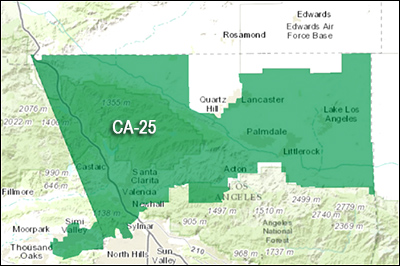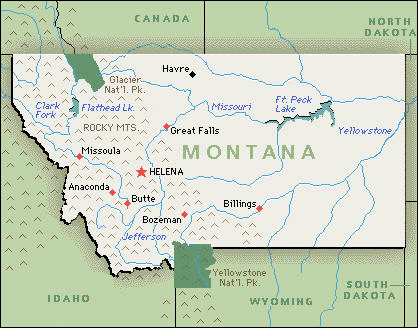By Jim Ellis

California Congressional District 25
In the special California primary held on March 3, a dozen candidates, six Democrats and six Republicans, battled one another either to secure majority support or one of two runoff positions for the May 12 runoff vote. Under California election law, if a candidate attracts majority support, the individual would be elected outright to serve the balance of the current term. If not, the top two finishers, regardless of political party affiliation, advance to a runoff election. It is the latter scenario that occurred here.
In addition to the special election, a second vote was held on March 3 for the regular succeeding term. In this contest, 13 candidates were on the ballot, the 12 aforementioned contenders along with Independent Otis Lee Cooper.
Not surprisingly, the two individuals finishing first in the special election also qualified for the general election. They are: freshman state Assemblywoman Christy Smith (D-Newhall) and defense contractor and Iraq War veteran Mike Garcia (R). The election totals in the two contests are somewhat different, however.
The final totals are still not tabulated. According to the Secretary of State’s office, 313,739 ballots statewide remain uncounted with virtually no progress being made last week. In the 25th District, approximately 5,500 votes await counting in order to be added to the published totals. The final tabulation will not change the first- and second-place finisher status, however.
Interestingly, despite the special and regular vote being held at the same time and on the same ballot, almost 4,000 more people voted in the special election than in the regular primary. Percentage-wise, approximately 39 percent of the district’s registered voters cast a ballot in the special while 38 percent did so for the regular primary. Statewide, the turnout measured just under 45 percent of the registered voters for the regular primary that included a contested Super Tuesday presidential vote.




